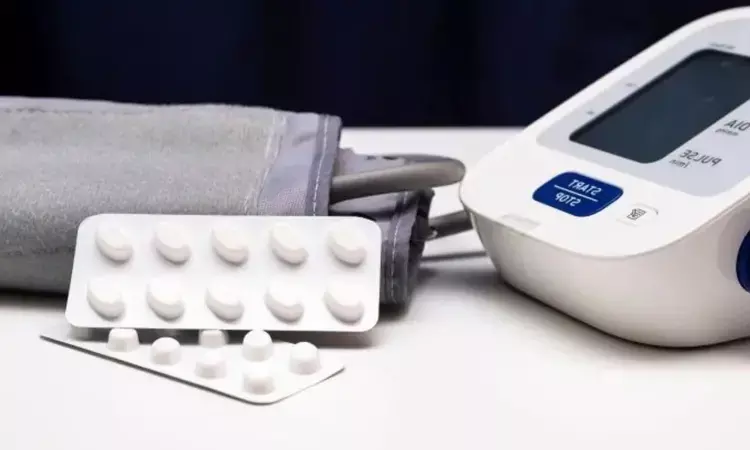- Home
- Medical news & Guidelines
- Anesthesiology
- Cardiology and CTVS
- Critical Care
- Dentistry
- Dermatology
- Diabetes and Endocrinology
- ENT
- Gastroenterology
- Medicine
- Nephrology
- Neurology
- Obstretics-Gynaecology
- Oncology
- Ophthalmology
- Orthopaedics
- Pediatrics-Neonatology
- Psychiatry
- Pulmonology
- Radiology
- Surgery
- Urology
- Laboratory Medicine
- Diet
- Nursing
- Paramedical
- Physiotherapy
- Health news
- Fact Check
- Bone Health Fact Check
- Brain Health Fact Check
- Cancer Related Fact Check
- Child Care Fact Check
- Dental and oral health fact check
- Diabetes and metabolic health fact check
- Diet and Nutrition Fact Check
- Eye and ENT Care Fact Check
- Fitness fact check
- Gut health fact check
- Heart health fact check
- Kidney health fact check
- Medical education fact check
- Men's health fact check
- Respiratory fact check
- Skin and hair care fact check
- Vaccine and Immunization fact check
- Women's health fact check
- AYUSH
- State News
- Andaman and Nicobar Islands
- Andhra Pradesh
- Arunachal Pradesh
- Assam
- Bihar
- Chandigarh
- Chattisgarh
- Dadra and Nagar Haveli
- Daman and Diu
- Delhi
- Goa
- Gujarat
- Haryana
- Himachal Pradesh
- Jammu & Kashmir
- Jharkhand
- Karnataka
- Kerala
- Ladakh
- Lakshadweep
- Madhya Pradesh
- Maharashtra
- Manipur
- Meghalaya
- Mizoram
- Nagaland
- Odisha
- Puducherry
- Punjab
- Rajasthan
- Sikkim
- Tamil Nadu
- Telangana
- Tripura
- Uttar Pradesh
- Uttrakhand
- West Bengal
- Medical Education
- Industry
Severe Hyperglycemia Linked to Poor Outcomes in Patients with Large Ischemic Stroke, finds study

A recent analysis of the RESCUE-Japan LIMIT trial revealed that severe hyperglycemia significantly worsens outcomes for patients with large ischemic region strokes, even when treated with effective interventions like endovascular therapy (EVT). The study published in the Journal of the American Heart Association highlighted the impact of elevated blood sugar levels on recovery and complications in stroke patients by focusing the critical aspect of stroke management.
The trial focused a total of 200 patients with a median age of 76.5 years and an average blood glucose level of 131 mg/dL. Participants were randomly assigned to either EVT or standard medical management. Blood glucose levels on admission were categorized into 3 groups as normoglycemia (<140 mg/dL), moderate hyperglycemia (140–179 mg/dL), and severe hyperglycemia (≥180 mg/dL). Each group was analyzed for functional recovery and complications, particularly symptomatic intracranial hemorrhage (ICH), within 90 days.
The major findings indicate that severe hyperglycemia was strongly associated with poor functional recovery. The proportion of patients achieving a modified Rankin Scale score of 0–3, signifying minimal disability, was only 6.5% in the severe hyperglycemia group when compared to 25% in the normoglycemia group and 24.5% in the moderate hyperglycemia group. Adjusted odds ratios (aORs) highlighted the stark difference, with severe hyperglycemia showed an aOR of 0.17 when compared to normoglycemia.
The risk of symptomatic ICH was markedly higher in patients with severe hyperglycemia (25.8%) when compared to the ones with normoglycemia (2.5%) or moderate hyperglycemia (6.1%). Also, the incidence of ICH varied based on treatment and glycemic status. In normoglycemic and moderately hyperglycemic patients, ICH rates were similar between EVT and medical management. However, in severely hyperglycemic patients, EVT carried a disproportionately higher risk of symptomatic ICH (36.8%) when compared to medical management (8.3%).
When compared to 18.4% in the moderate group and 10% in the normoglycemic group, this study also underlined the prevalence of diabetes among hyperglycemic patients, with 71% of the severe hyperglycemia group having pre-existing diabetes. This highlighted the potential role of diabetes as a contributing factor in poor stroke outcomes. Overall, these findings illuminate the importance of glucose management in acute stroke care.
Source:
Tanaka, K., Yoshimoto, T., Koge, J., Yamagami, H., Imamura, H., Sakai, N., Uchida, K., Beppu, M., Matsumaru, Y., Matsumoto, Y., Kimura, K., Ishikura, R., Inoue, M., Sakakibara, F., Morimoto, T., Yoshimura, S., & Toyoda, K. (2024). Detrimental Effect of Acute Hyperglycemia on the Outcomes of Large Ischemic Region Stroke. In Journal of the American Heart Association. Ovid Technologies (Wolters Kluwer Health). https://doi.org/10.1161/jaha.124.034556
Neuroscience Masters graduate
Jacinthlyn Sylvia, a Neuroscience Master's graduate from Chennai has worked extensively in deciphering the neurobiology of cognition and motor control in aging. She also has spread-out exposure to Neurosurgery from her Bachelor’s. She is currently involved in active Neuro-Oncology research. She is an upcoming neuroscientist with a fiery passion for writing. Her news cover at Medical Dialogues feature recent discoveries and updates from the healthcare and biomedical research fields. She can be reached at editorial@medicaldialogues.in
Dr Kamal Kant Kohli-MBBS, DTCD- a chest specialist with more than 30 years of practice and a flair for writing clinical articles, Dr Kamal Kant Kohli joined Medical Dialogues as a Chief Editor of Medical News. Besides writing articles, as an editor, he proofreads and verifies all the medical content published on Medical Dialogues including those coming from journals, studies,medical conferences,guidelines etc. Email: drkohli@medicaldialogues.in. Contact no. 011-43720751


